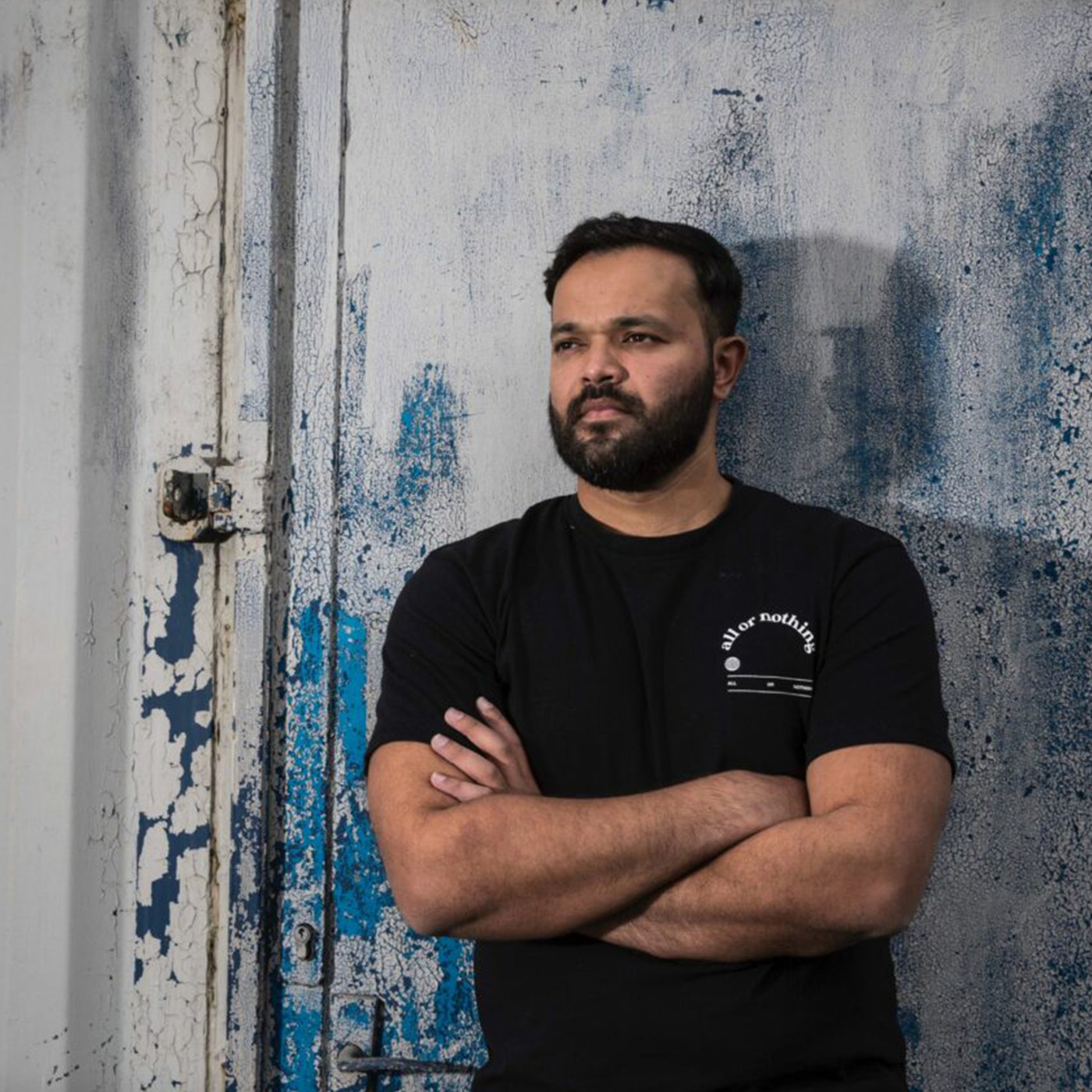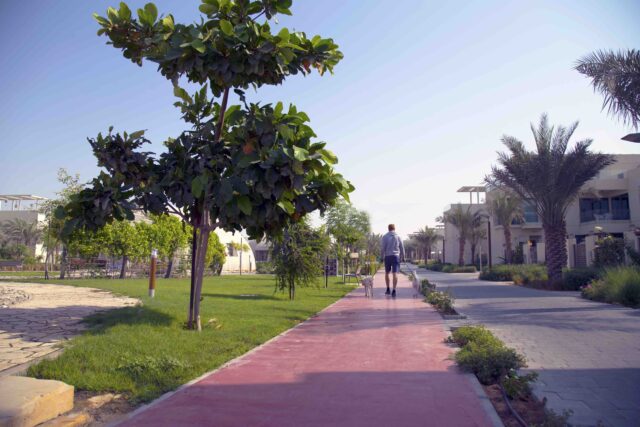Azeem Rafiq is a former professional cricket player who played for England’s Yorkshire County Cricket Club for many years. In September 2020, he accused the cricket club of racism and bullying. His story made national headlines, and he is hailed with blowing the whistle on some of the many prejudices that still exist in society today. His speaking out led to several resignations at the club, and it initiated investigations into racism in sport by the England and Wales Cricket Board (ECB) and the British parliament.
Now based in Dubai, he continues to campaign for racial equality in all areas of life. His first book It’s Not Banter, It’s Racism is set to be published in April 2024, and a documentary about his experience with racism is in the works. Along with being a cricket broadcaster for Dubai Eye 103.8, he is open about his own mental health struggles and regularly speaks about the subject at events and for large corporations.
The British advocate spoke to Livehealthy about why there is still a stigma around men’s mental health, why he will never stop fighting against racism, and what he does to lift himself up whenever he feels low.
Why is men’s mental health such an important issue?
Poor mental health is something I’ve struggled with for a very long time. I came very close to taking my own life and I’ve been taking antidepressants for years.
Mental health in South Asian men is something that I’m really passionate about because there’s still a huge stigma about it. Men really struggle to speak about their feelings and there’s not enough safe spaces where they can do so. There’s this idea that they can’t talk about their emotions and still fulfil their responsibilities.
A lot of the messages I get are from men saying that my experience resonates with them, and that it’s made them feel like they can speak up, too. Even if it‘s just one person, I want to help people speak about their feelings and make the world a better place.
My parents only found out that I came close to taking my own life when I spoke out on international TV. That was the first they heard about it.
There’s still a fear about how things like this will be perceived. I have travelled around the world and I’ve heard of many people who have been told ‘oh just get on with it’, or ‘you’re thinking too much’.
These types of responses are so damaging for someone that’s struggling because it creates that feeling of loneliness, and that people don’t want to listen. There’s a real lack of understanding about how to recognize depression, and how to respond to it.
How can you help someone who is struggling?
The best thing you can do is listen, and make them feel heard. Ask what you can do to help and encourage them to seek professional advice and help.
If ever I’m going through a rocky patch, I always try and speak to someone. I’ve found that there are a lot of great people out there who really do care.
Recently I went back to the UK and I really struggled. I was abused on the street of my local town and it really got to me. I shut myself off and didn’t leave my sofa for a few days. But then I posted a story, and someone I’d met recently came to see me for a coffee and a chat. That really helped me a lot because it reminded me that I’m not alone. So, in a way, the message is not to be scared to get help.
How is your mental health now?
To think you can fix everything is delusional really. I find it tough on a daily basis, even now. But I’ve learnt to recognize when I need counseling.
My therapist has helped me adopt a great mindset. Since I moved to Dubai in December 2022, I’ve been in the best space that I’ve been in for about seven years. It’s important to recognize the positives as well.
Life is imperfect, but we need to enjoy the imperfections. I’ve tried to take that into everyday life. There’s constant challenges. On social media people say things like I hope you get ill and die, and that I should never come back to the UK and stuff like that. So I’ve just had to find a way of dealing with it.
What is it like to experience racism?
You stomach just crunches. Even now when I read some of the stuff I get on social media, it makes me feel numb for a while. To experience it face-to-face, like I did recently in the UK, makes me seriously angry. Then I feel upset and then it turns into helplessness. I’ve spoken on international television about how close I came to taking my own life, but it’s still carrying on.
It gets to me, but at the same time, I feel very fortunate that I have an outlet and a platform to speak on. I’ve really been heard and I have the most amazing support system outside of cricket that anyone can ask for, including my legal support, PR teams and others.
People have really opened up and been supportive, but that doesn’t mean that racism doesn’t happen.
I think we’ve just got a long way to go. I don’t actually like the word tolerance. For me, it’s more about embracing and respecting each human being for what they are, because we shouldn’t need to be tolerant of anyone. Ultimately this will make the world a happier place for everyone. Unfortunately, cricket is still at a stage where it’s not willing to accept its problems and change. However, I am having conversations with the leadership at the ECB about how we can improve things.
Are you still involved in cricket?
I’m more focusing on leadership-type coaching and broadcasting. I really love it.
I’m alsi a consultant at Mishcon de Reya (MDR) Mayfair and I help athletes transition when they retire. A lot of former athletes struggle with having no set routine, and they find it hard to maintain their physical state. I do a lot of work with corporations and workplaces as well because that’s where most of us spend a lot of our time.
I want to create a world where everyone feels like they can speak openly about racism and mental health. But we’re a long way from that.
How does exercise benefit you?
For me, my physical and mental health go hand in hand. I put on a lot of weight when I was on antidepressants, and I was getting a lot of abuse from social media trolls. I knew I needed to change things, but I wasn’t ready for a long time.
Then I slowly tried to incorporate exercise into my life, and now I’m in a much better space physically. This then really helps me mentally as well.
I believe that movement helps your mental health. I’d encourage anyone to just move as much as possible because it will give you a healthier and longer life. Physical movement has such a profound impact on my life. Even if it is just going for a walk, it all makes a difference.
What can people expect from your book and documentary?
The book is going to be my way of finally getting everything off my chest and letting people know what happened. Because there’s been so much misinformation about my journey.
There’s going to be some real personal stuff in there about my mental health, how close I came to taking my own life, and the impact that it’s had on my family.
I touch on the fact that my biggest support has come from middle-aged white men, a demographic that gets absolutely smashed in the conversation about racism. On the other hand, a lot of people who have been part of the discrediting campaign come from my community. This is how the system works. It’s easy for them to get a brown person that will speak their language and try to minimize the problems.
It also goes really deep into what solution looks like, and how we can make things better.
How does it feel to be a whistleblower?
My story is very much about resilience and perseverance, and it is incredibly positive, too.
Very early on, someone said to me, “Whistleblowers never have a successful life after.” But I want to show everyone that you can actually stand up and you can have your voice heard, no matter how small it is, and have a successful life after.
I didn’t even know what a whistleblower was or what it meant till the day that Lord Patel did his press conference and called me a whistleblower. I’m an accidental whistleblower. I was a broken human. I had lost my son, and that was the worst thing. I carried my son from a hospital to a graveyard.
Having difficult conversations can be uncomfortable for people. But I’m not sorry. I think the reason we don’t create solutions is because too many of these conversations get fitted into the narrative of what suits society.
It’s lonely at times and there’s a lot of challenges, but I wouldn’t change it for the world because it’s brought me closer to my religion. It made me a better person and I’ve built friendships through life experiences.
My platform and my voice is for the people on the streets. I want to continue to be able to do that for the rest of my life.
How did you cope with losing your child?
It really changed my life. What made it worse was how inhumane my workplace was about it. It happened in 2018 and we haven’t recovered.
But Allah has brought me closer to my son, and the experience brought me closer to my faith. Baby loss is an incredibly tough subject, and I want to help connect people who have been through the same thing.






